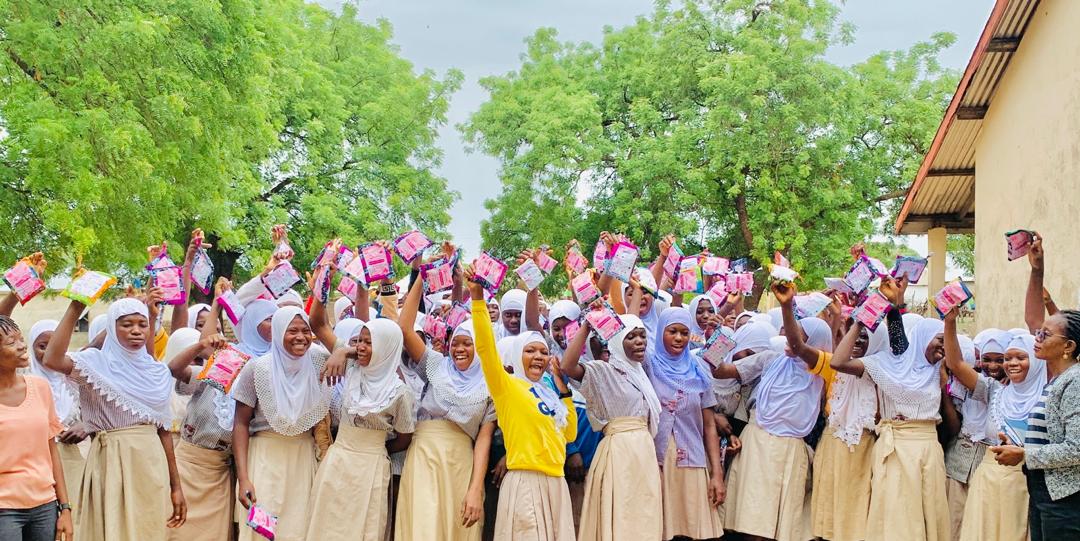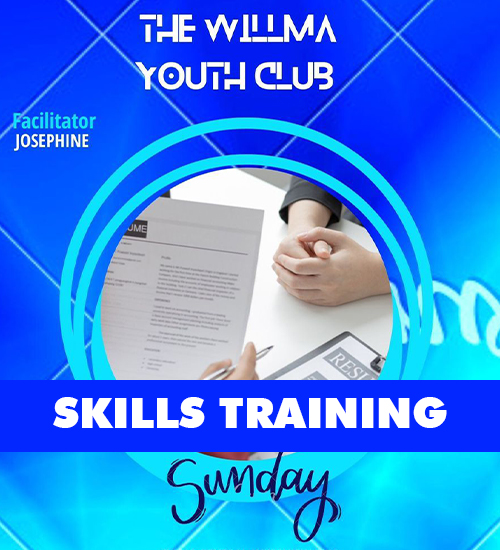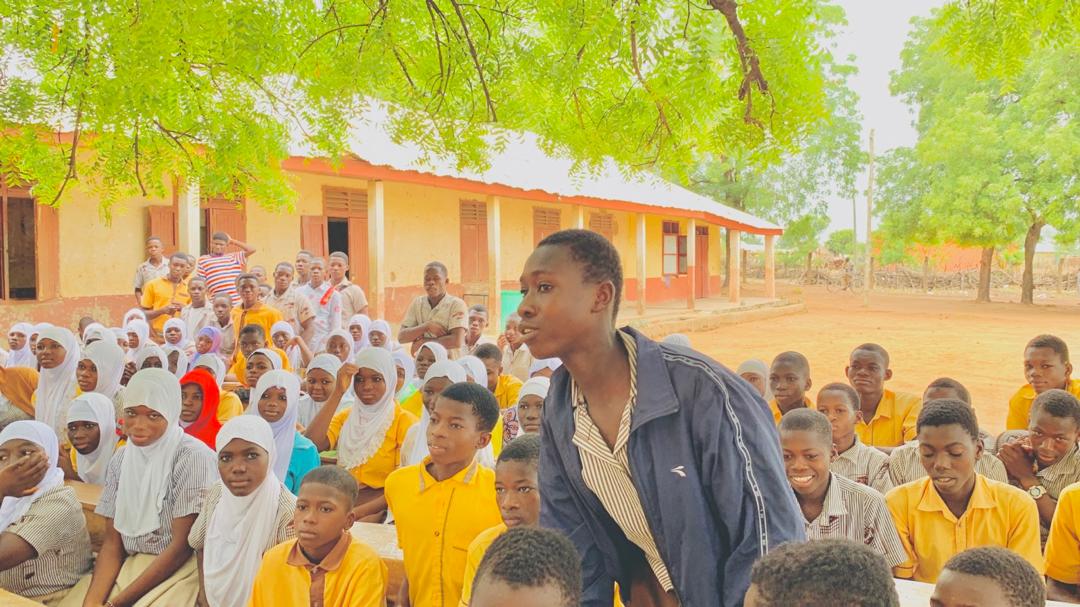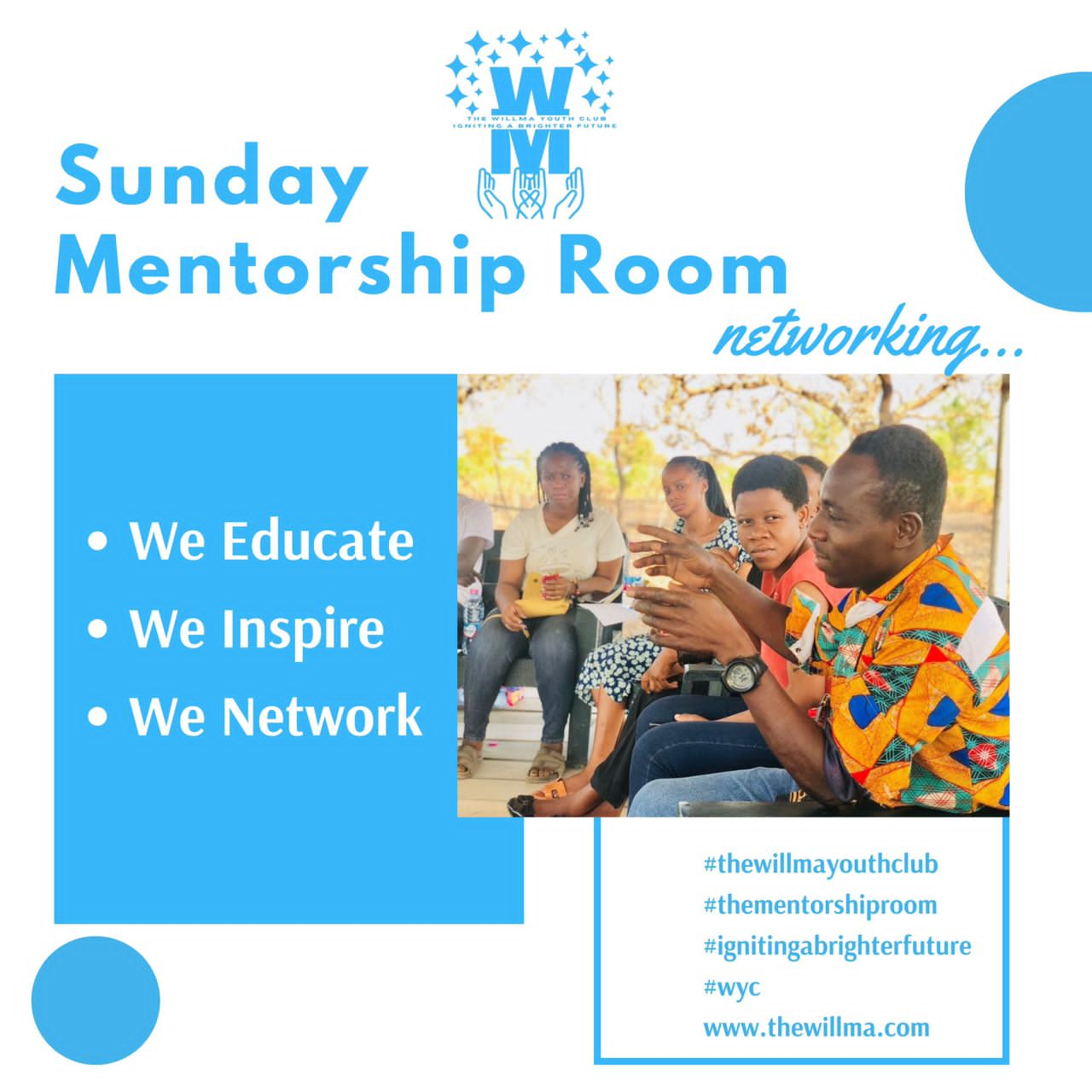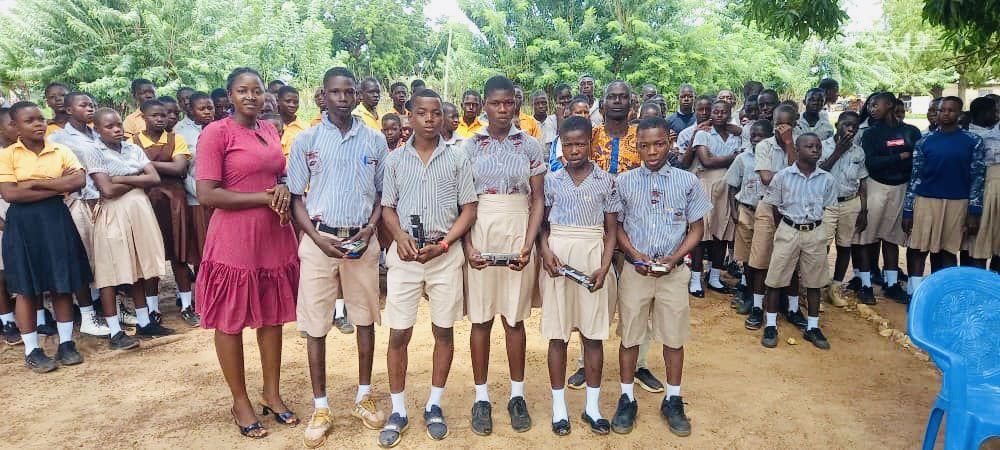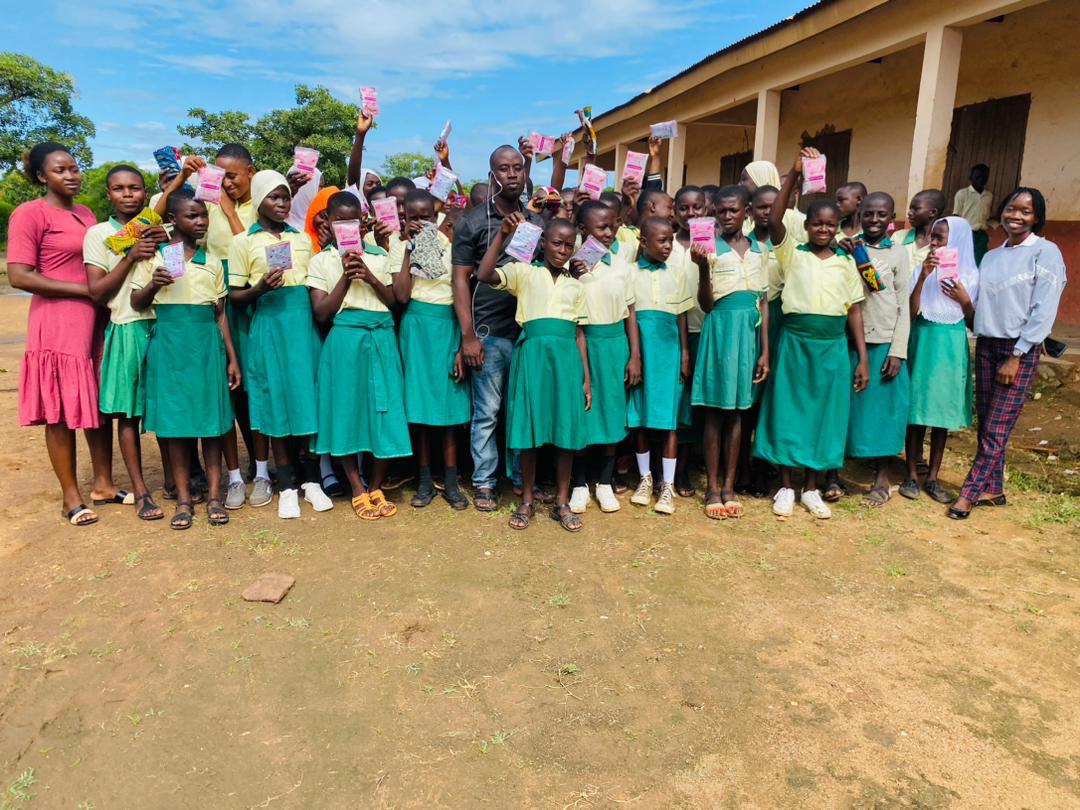REUSABLE PAD DONATION AND SRHR EDUCATION TO BOLI STUDENT
An attempt to help keep the girl child in school.
On May 17, 2024, we donated over one hundred reusable menstrual health products to Boli M/A Junior High School in the Upper West Region. This impactful initiative, emphasize the importance of understanding menstrual cycles, reproductive health, and managing periods with dignity. We also highlighted the fundamental rights of the students. Our SRHR outreach aims to support more female students in underserved communities and raise awareness about sexual and reproductive health and rights among youth in Ghanaian communities. During the engagement, we discussed sexual and reproductive health and rights with the students, encouraging them to embrace their puberty experiences, avoid teenage pregnancy through abstinence, and seek guidance from responsible adults. We highlighted the challenges young girls face regarding menstrual hygiene. Stating that, "Menstruation is a natural aspect of life, not a punishment. However, our girls often face challenges due to limited access to safe menstrual products or a lack thereof when needed." Our journey began with distributing disposable sanitary pads to children in underserved communities. However, feedback indicated a need for more sustainable solutions, as disposable pads provided only temporary relief.
We also addressed the financial barrier posed by the high cost of disposable pads, which often prevents girls from attending school. We stressed the practicality and cost-effectiveness of reusable pads, underscoring the importance of regular washing with soap and clean water to maintain hygiene and ensure safety. We encourage male students to combat stigmatization and support girls during challenging times, emphasizing our collective responsibility to create a supportive environment. We also urge young women to seek medical advice rather than relying on excessive medication during their periods, promoting a holistic approach to menstrual health. Moreover, we highlighted adolescence as a crucial phase between childhood and adulthood. Emphasized the transformative impact of reusable health products on young women and stressed the need for educational efforts due to prevalent levels of ignorance. We advised the children to prioritize their health by avoiding excessive medication during menstruation and seeking professional guidance when needed. stressing the importance of informed decision-making and proactive healthcare practices.
Additionally, we underscored the significance of adolescence, which spans ages 10 to 19, as a pivotal phase of development. Highlighted the need for sensitization efforts due to prevalent ignorance and advised schoolchildren to abstain from sexual activities, noting the dangers associated with teenage pregnancy.

